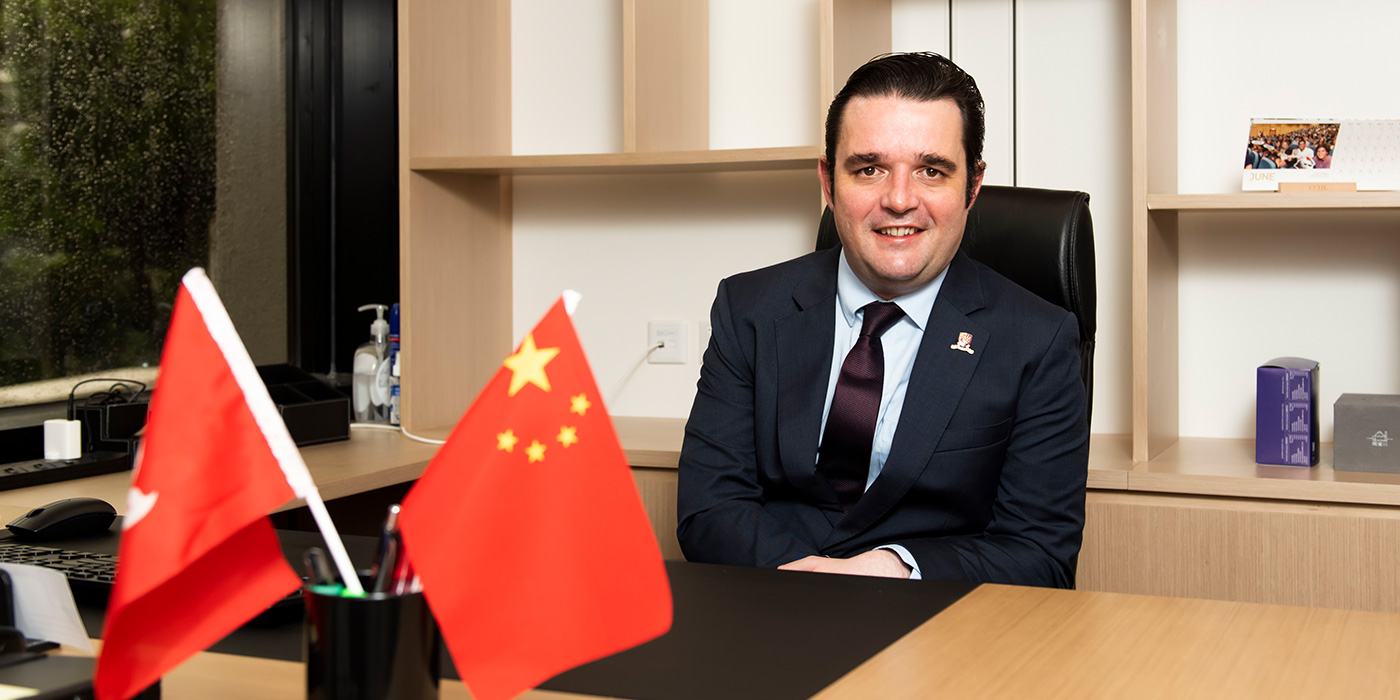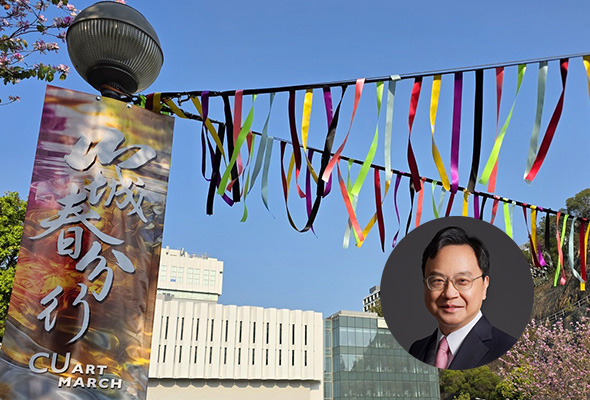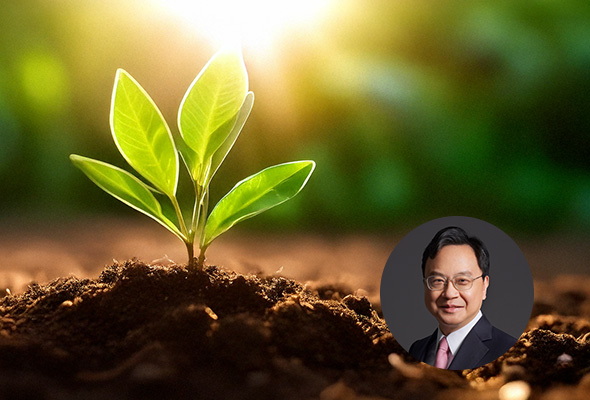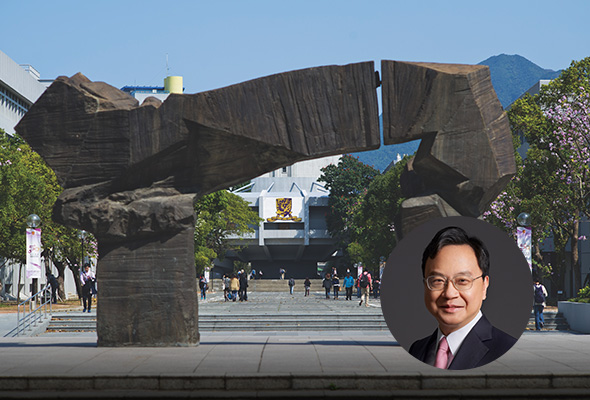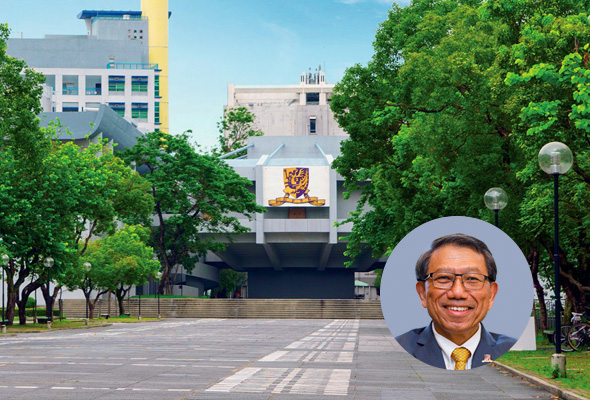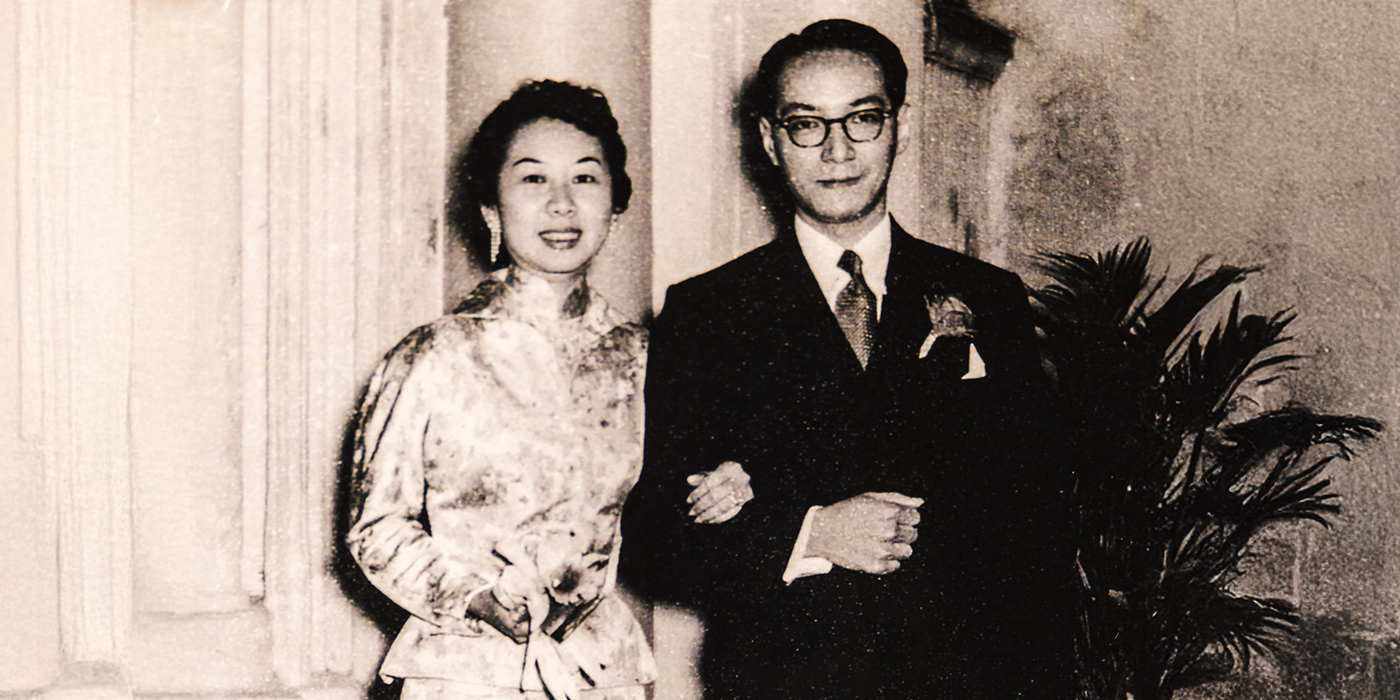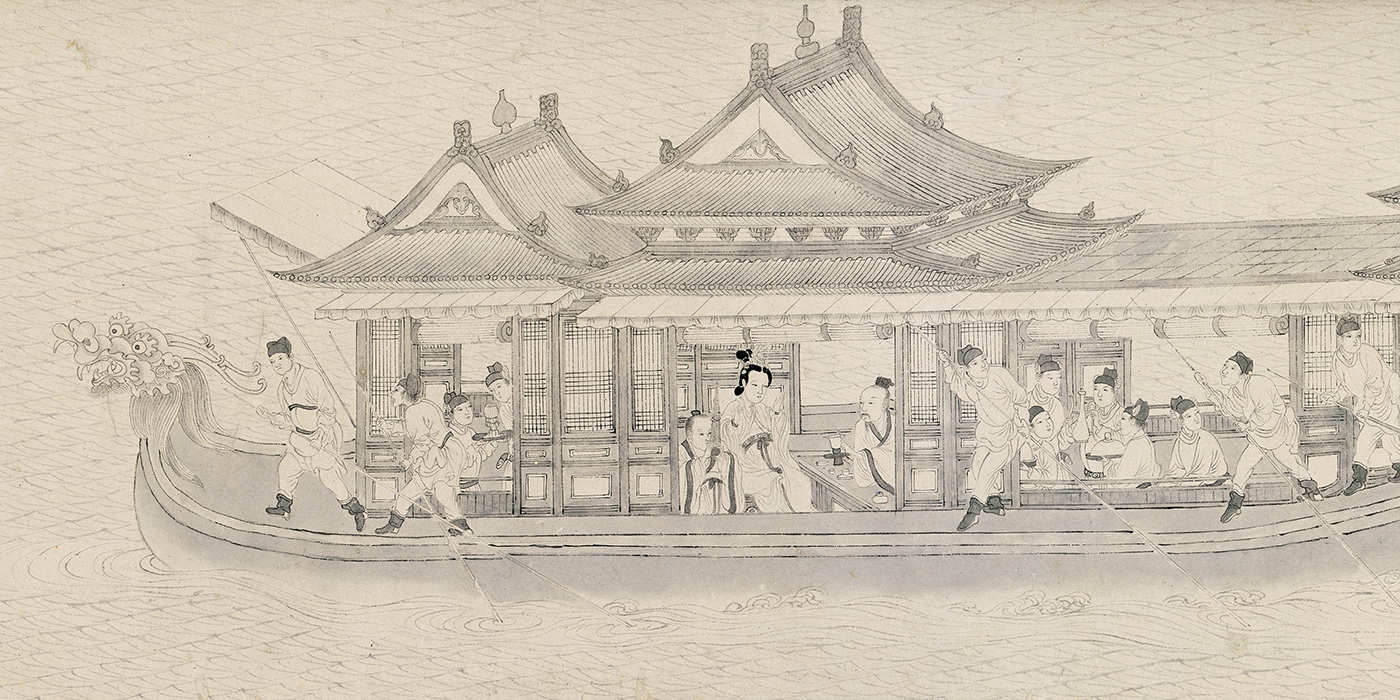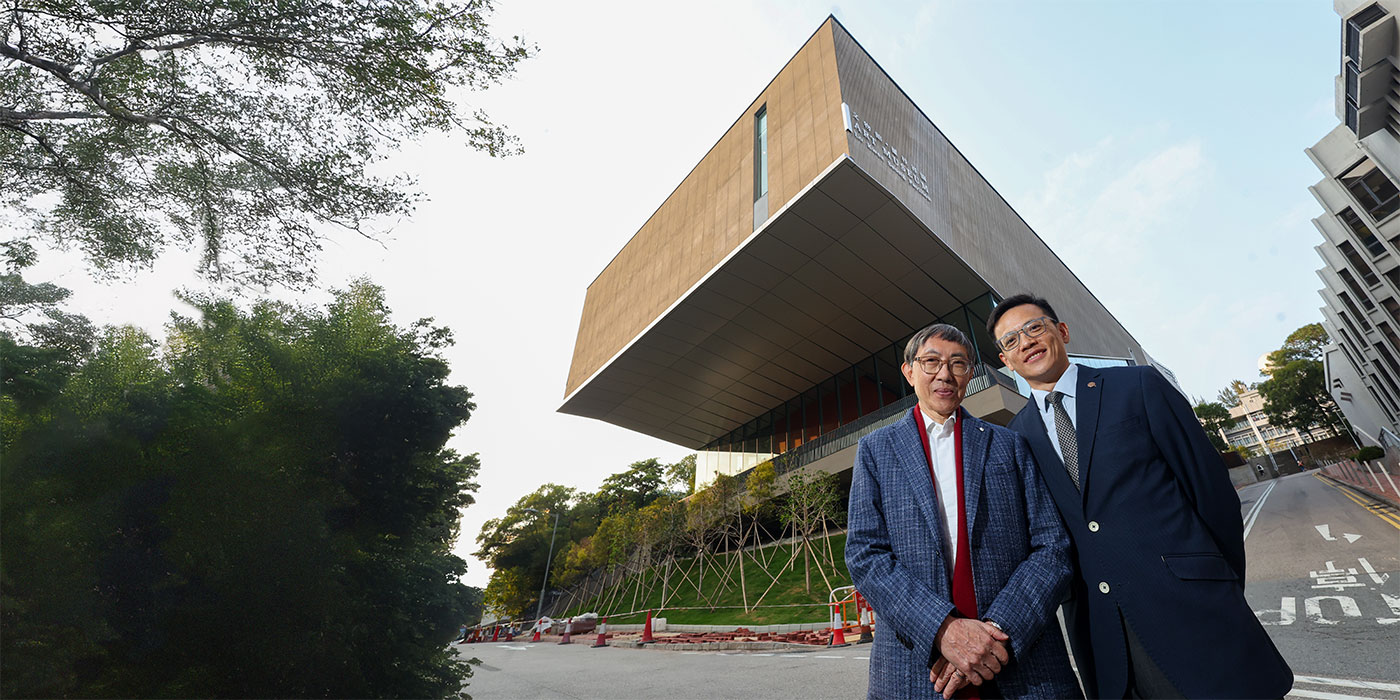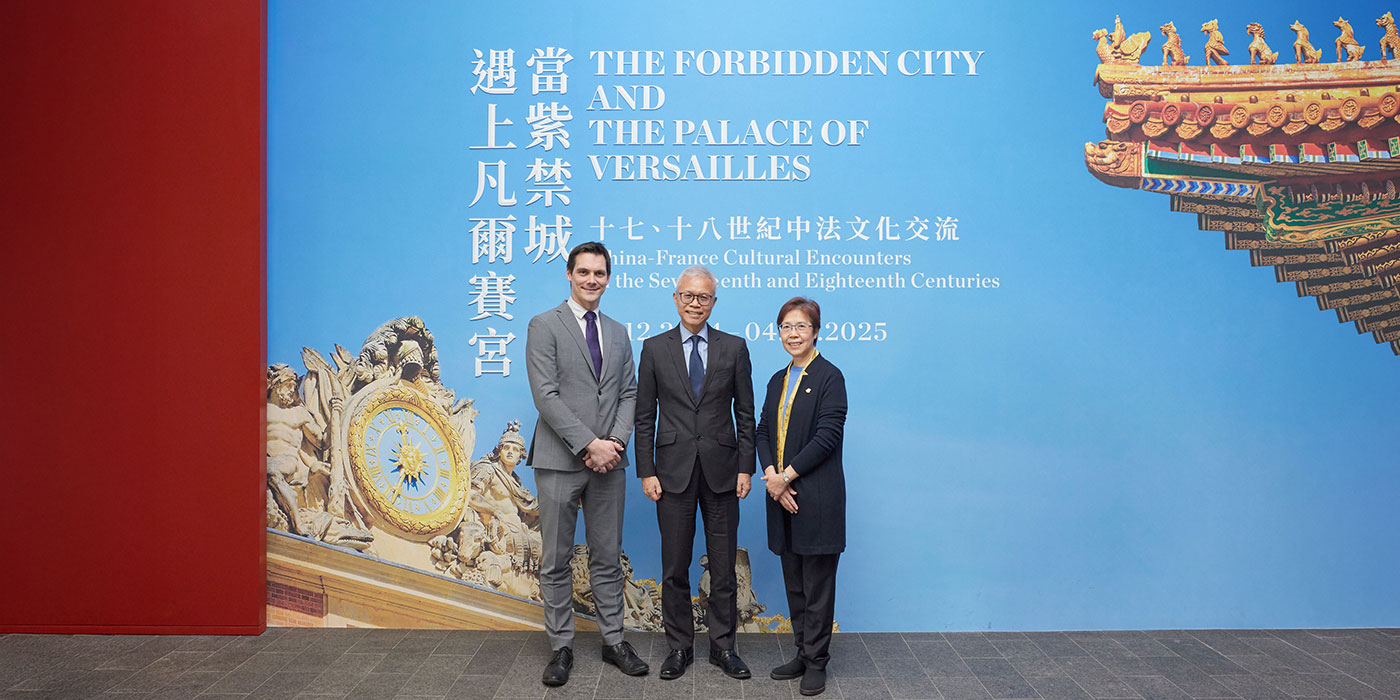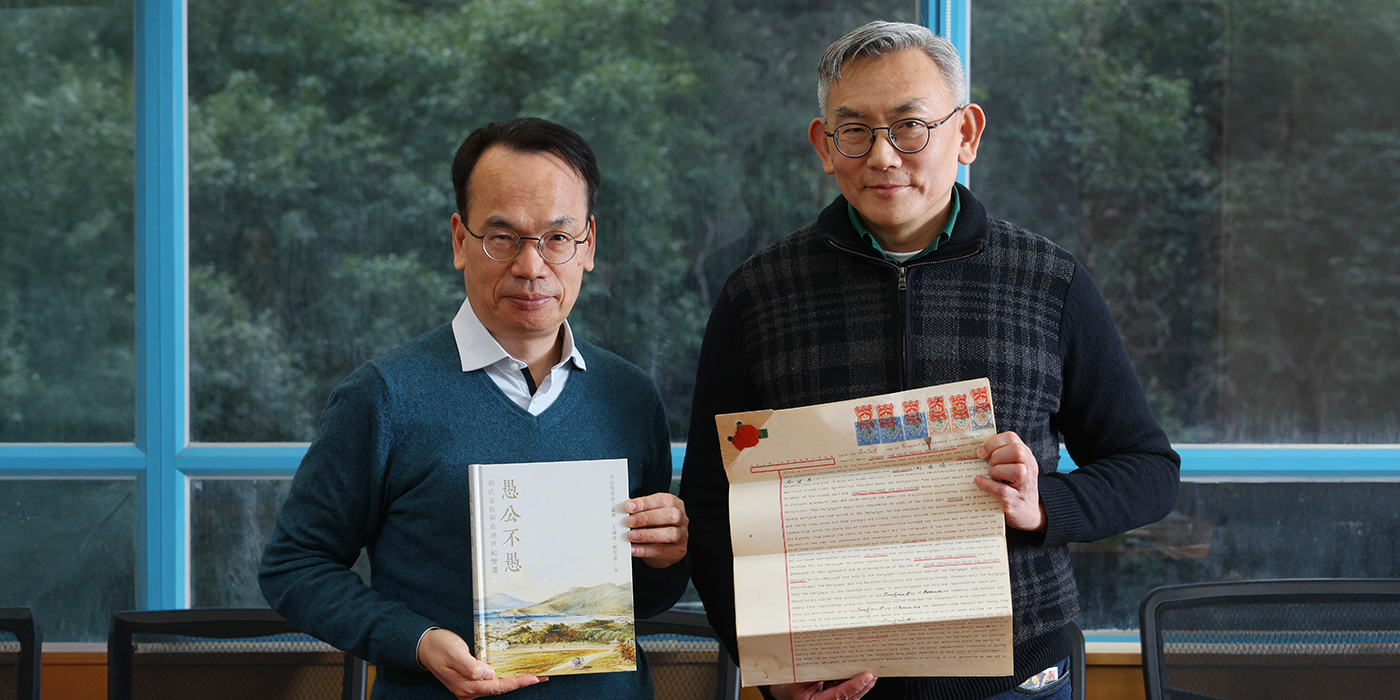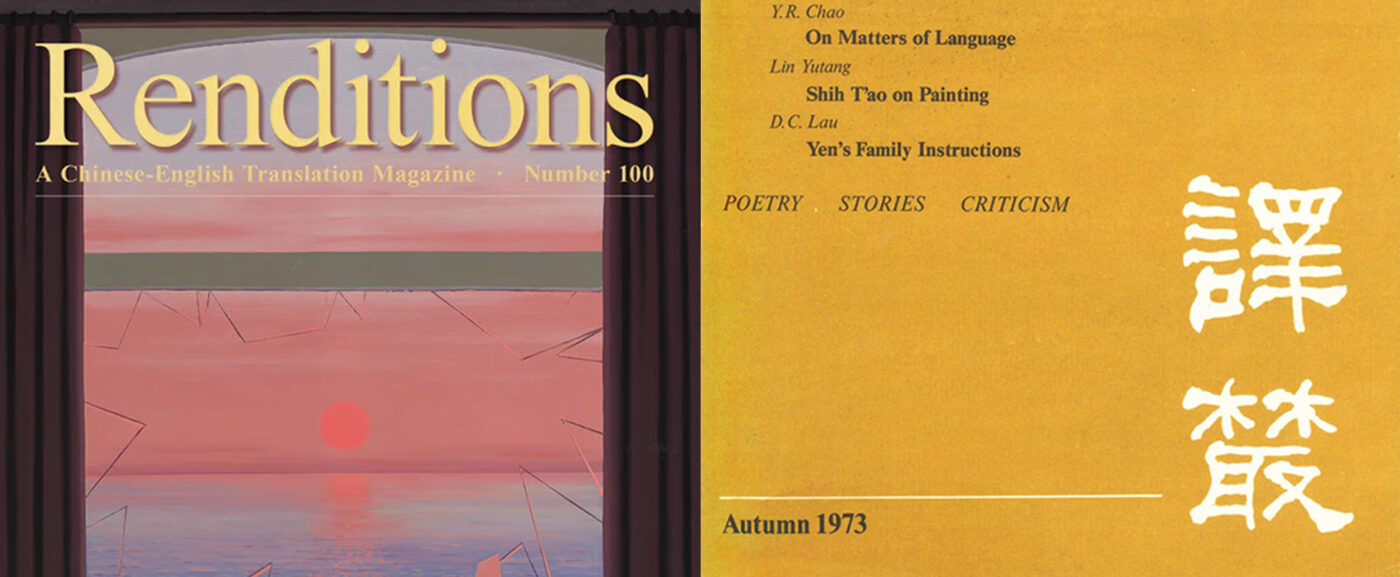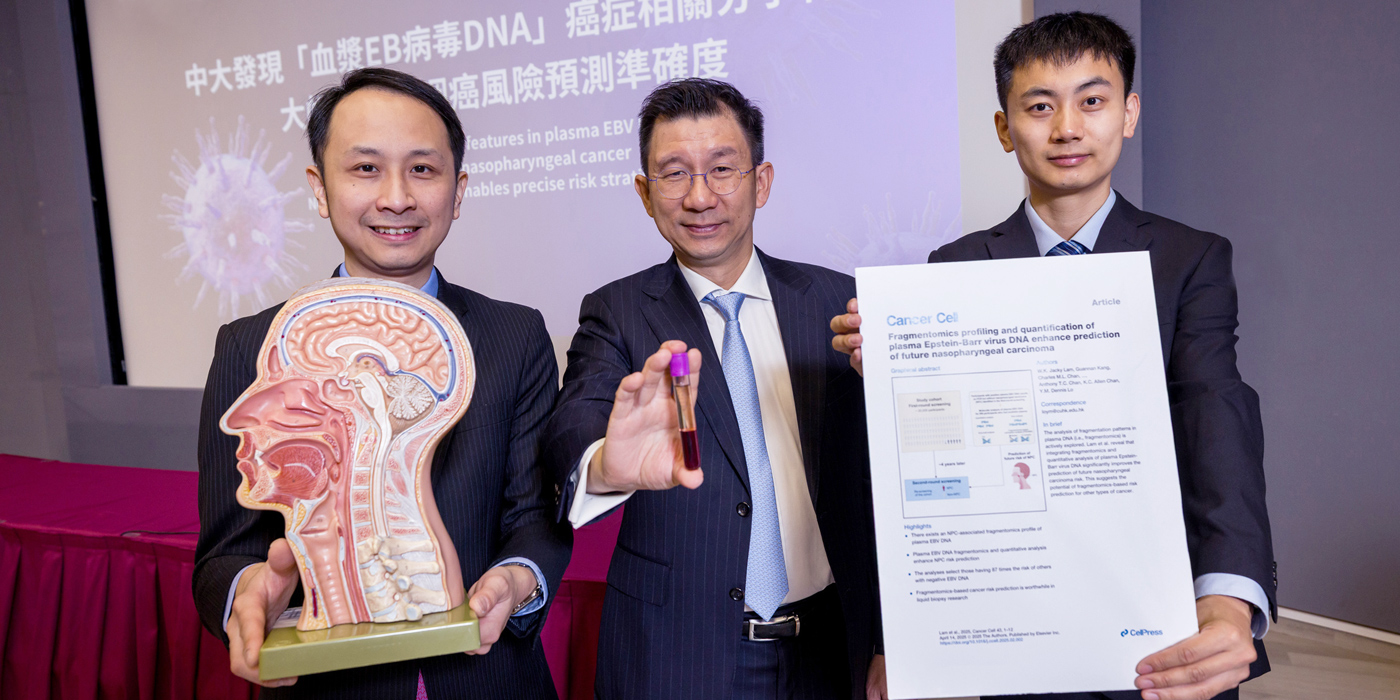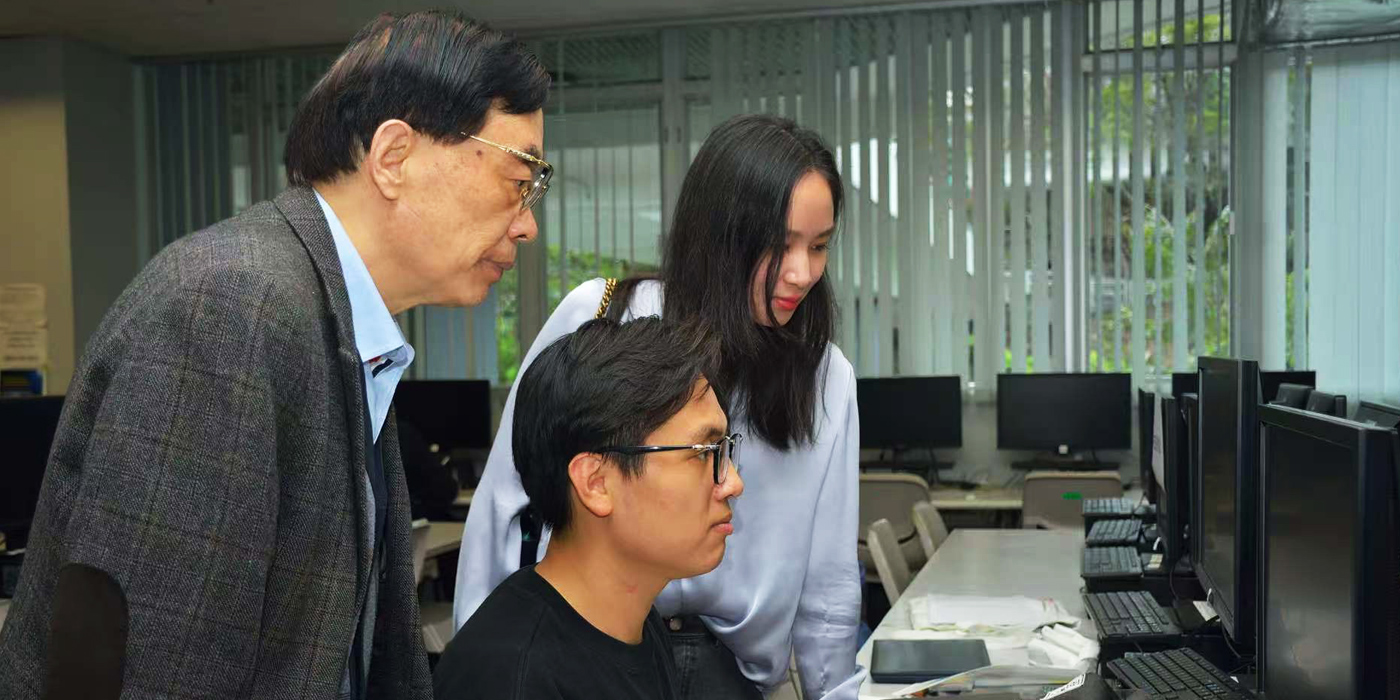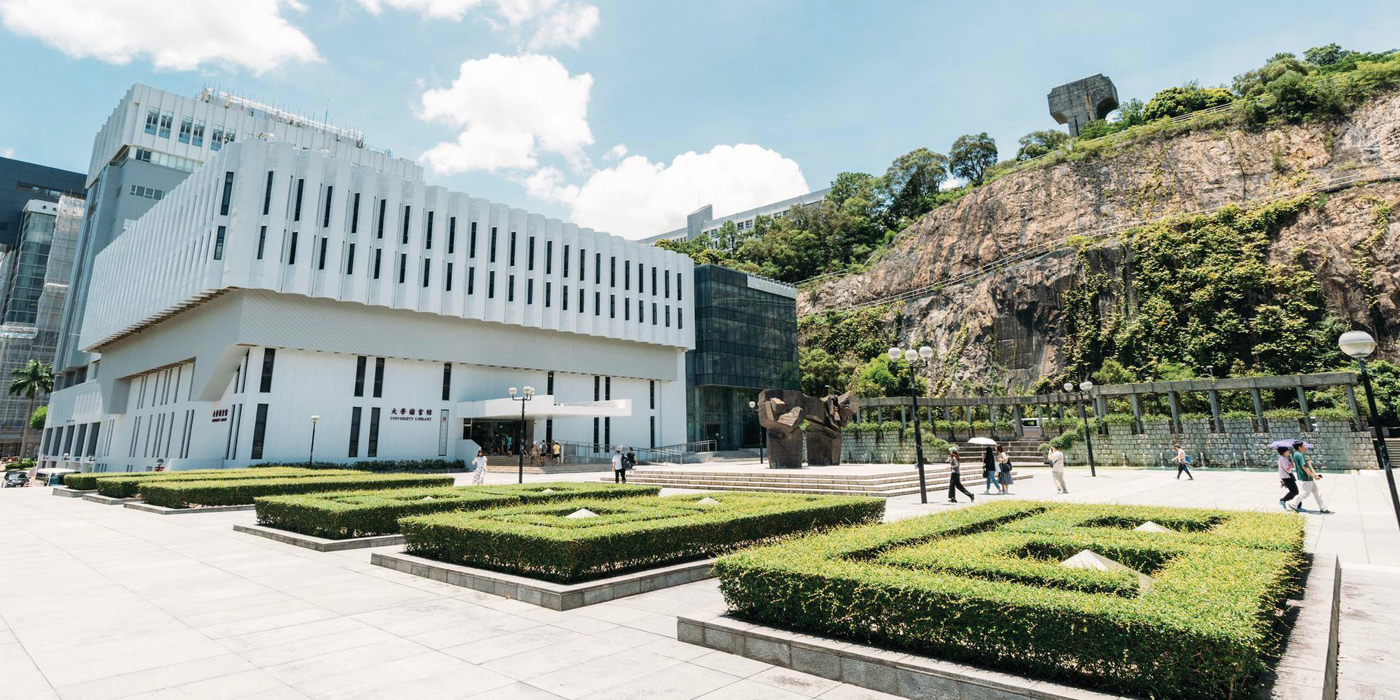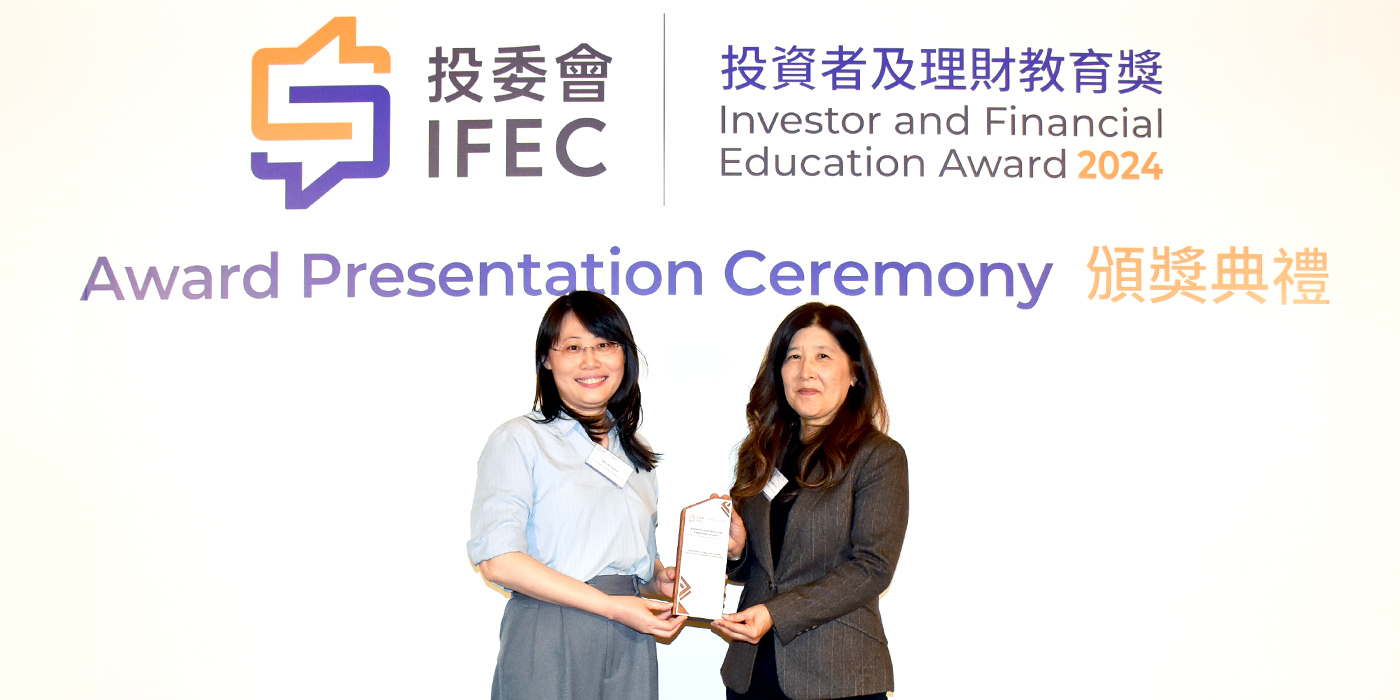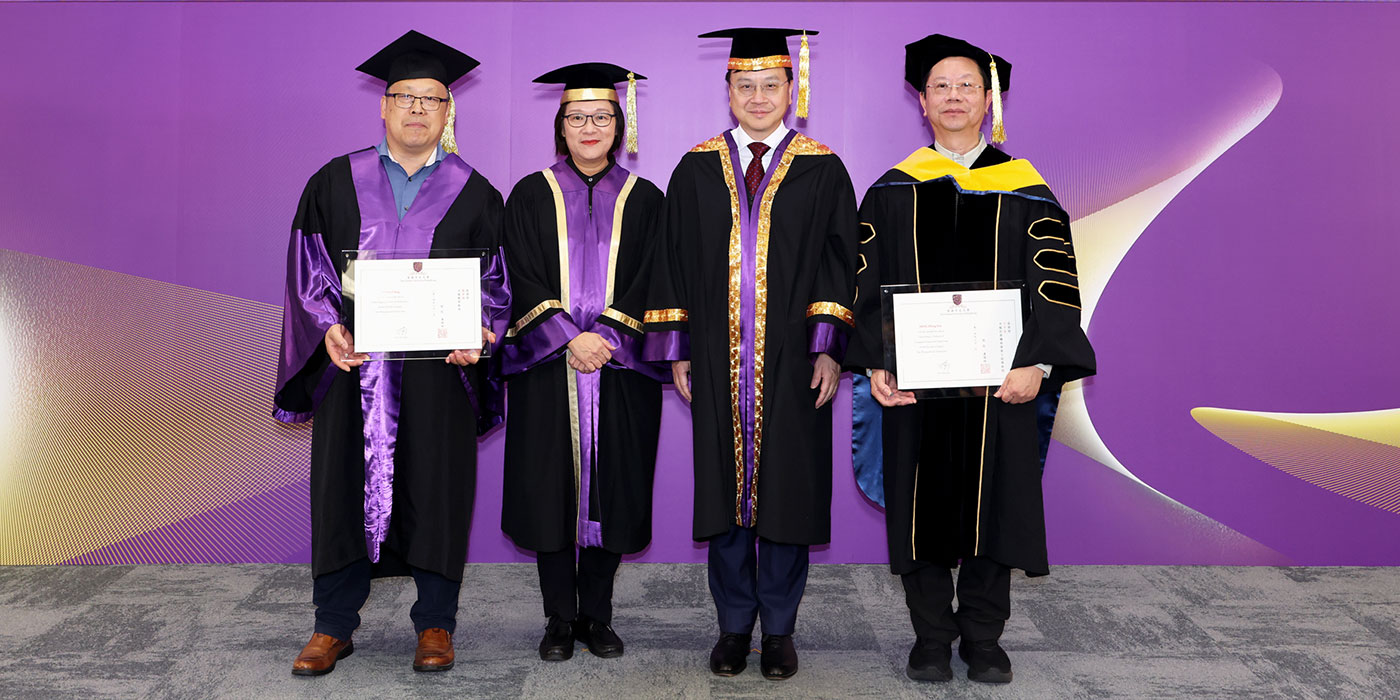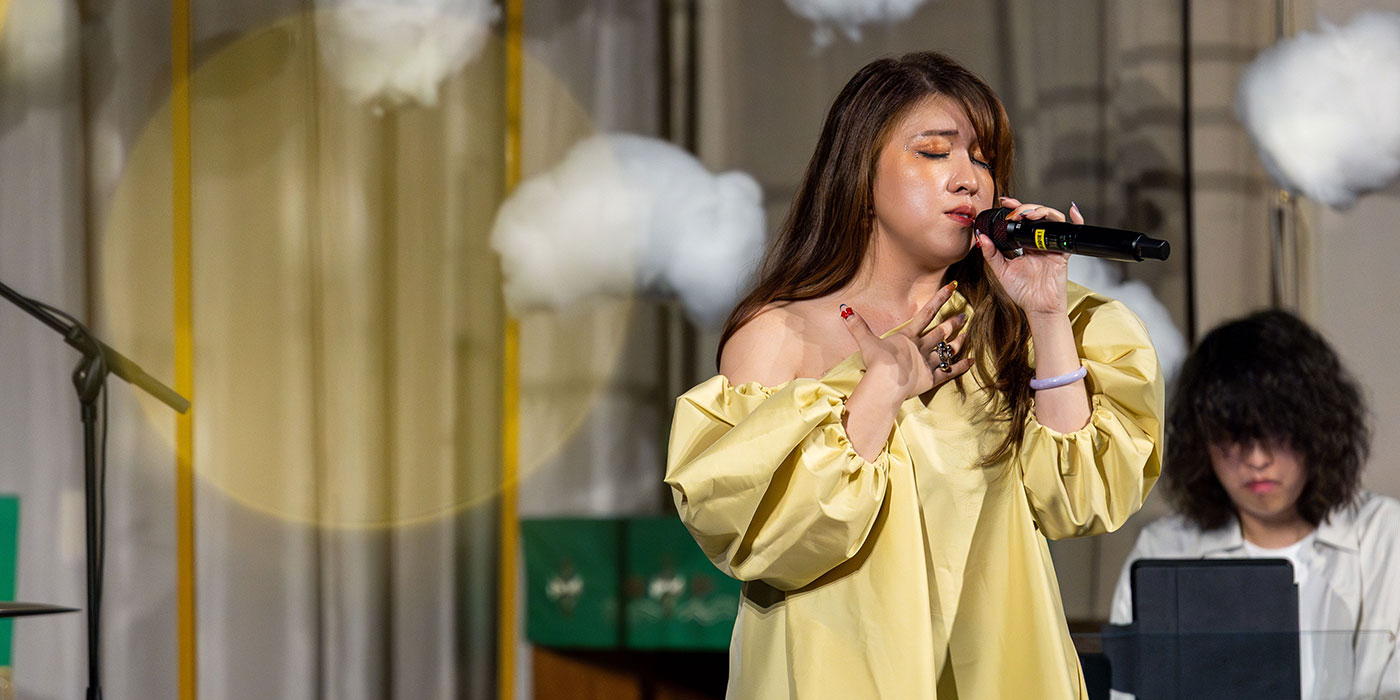An accidental discovery of China
New associate vice-president takes the lead in telling CUHK’s story on global stage
For Laurie Pearcey, his “discovery” of China was an accident. A trip to China two decades ago changed his life forever and China has got under his skin since then.
After finishing his high school study in 2002, the young Australian planned to have a gap year in Europe before coming back to Australia to start university. “I would have taken the Australian rite of passage on a backpacking adventure in Europe.”
At the time, his elder brother was teaching English in Zibo (淄博), Shandong Province. “My brother said to me: ‘Why don’t you stop by China?’” Pearcey recalled. “But to be honest, I was never interested or motivated to go to China. But out of sympathy for my brother who I thought was lonely and living in the middle of nowhere, I said why not.”
On a day in the middle of winter in 2002, Pearcey landed in Beijing. “The day after my arrival, I climbed the Great Wall and it was about minus 30 degree Celsius. It was snowing and there I could see the Great Wall of China covered in snow. It was breathtaking and I was immediately hooked, so I never made it to Europe.”
He subsequently taught English at a secondary school in Zibo for a year. “I learned very basic taxi driver Chinese with a heavy Shandong accent, enough for me to introduce myself and have basic conversations,” he said.
“The trip to China changed my life forever”
The young man, currently Associate Vice-President (External Engagement and Outreach) of the Chinese University of Hong Kong, became very fascinated by Chinese culture, history and politics. “I never looked back, and it changed my life forever. China has defined my entire adult life.”
What struck him most during his stay in China was the blend of tradition and modernity. “Stark contrasts are everywhere. You can have a Song dynasty pagoda literally standing side by side to an industrial smokestack, or you can have a Guanyin statue underneath a portrait of Chairman Mao in someone’s living room and it seems to occur quite naturally.”
For Pearcey, it was fascinating considering CUHK’s mission “to combine tradition with modernity, and to bring together China and the West”.
He returned to Australia after his one-year stay in Shandong and studied international relations at the University of New South Wales. He was required to choose a foreign language stream and Chinese language was his obvious choice. “I studied history, culture and philosophy. And I spent a year at Tsinghua University, studying Chinese politics.”
“For the last 20 years, everything I’ve ever done has been deeply connected to China. I’ve been to the mainland 87 times over the last 20 years,” he said.
For Pearcey, it was a very exciting time to stay in China. His first visit to China came shortly after China joined the World Trade Organisation and won the right to host the 2008 Olympics. “The world’s interest in China was growing. And it was a very interesting time to start a career focused on China.”
He made his first visit to Hong Kong in 2006 when he and other Australian students were invited by the then Chinese Premier of China Wen Jiabao to visit Beijing as members of a youth delegation to facilitate people-to-people relations between Australia and China.
At the end of the visit, he left Shenzhen and went to Hong Kong before returning to Australia.
“Hong Kong is a place that has always deeply attracted me. It’s for all of the reasons that are well documented cliches: East meets West, and its vibrant, cosmopolitan, diverse nature,” Pearcey said.
Pearcey, previously Pro-Vice-Chancellor (International) of his Australian alma mater, has a solid record of fostering global partnerships.
Prior to joining higher education, he was the chief executive of the Australia China Business Council and promoted trade and investment ties between Australia and its largest trading partner.
“CUHK’s 60th anniversary represents a fantastic opportunity for us to tell our story”
Nearly a year after taking up his job at CUHK, Pearcey has set his sights on telling the university’s story to the rest of the world.
“Next year (2023) marks CUHK’s 60th anniversary. Sixty is a big deal in Chinese culture. It is the end of a 60-year cycle (甲子) and it signals a rebirth,” he said. “The 60th anniversary represents a fantastic opportunity for us to tell our story.”
One of the major initiatives that Pearcey is working on at the moment is the Times Higher Education’s Asia Universities Summit, which will be co-hosted by CUHK in June 2023. The mega event will bring up to 400 university leaders to Hong Kong, to share thoughts on the future of higher education in Asia by 2050. “That will represent a significant occasion for CUHK to tell its story on the global stage,” he said
CUHK’s new 2021-2025 Strategic Plan highlights four areas for the university’s development, namely (1) China: Tradition and Modernity; (2) Innovative Biomedicine; (3) Information and Automation Technology and (4) Environment and Sustainability.
Referring to the first pillar, Pearcey said the world would benefit by having more people who were better informed about China’s history, culture and politics.
“Hong Kong should not underestimate the role that it can play in terms of the world’s understanding and appreciation of China,” he said.
“For the last two and a half years, the rest of the country has been closed to international students. You’ve got 400,000 international students who have been unable to enter China for the last two years. Hong Kong is the only place in the country that has been open to international students over the last two and a half years.”
He is adamant that because of Hong Kong’s “global DNA” and its links to China, it has a unique role to play in training the next generation of talents and people with a deep understanding of China.
By Gary Cheung
Photo by Gloria Ng and Matthew Wu

